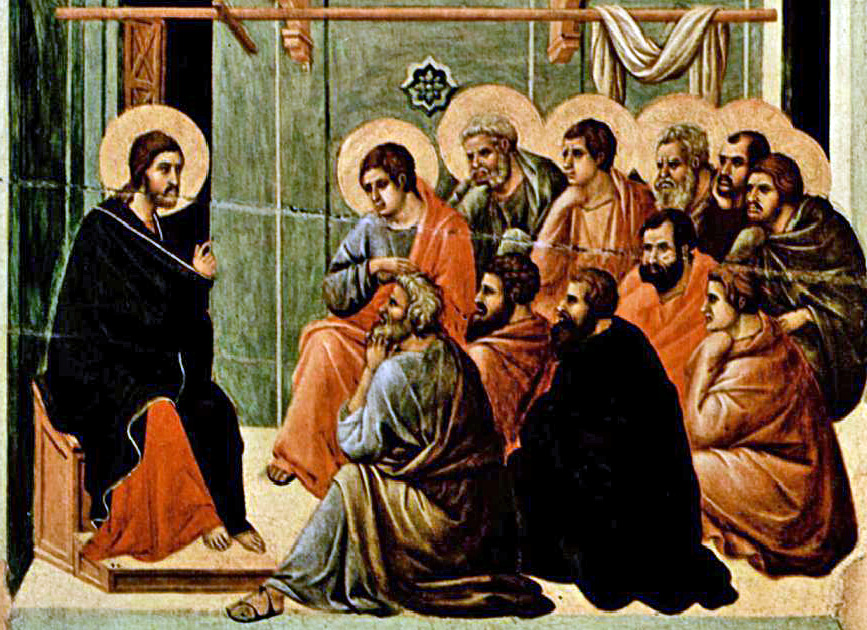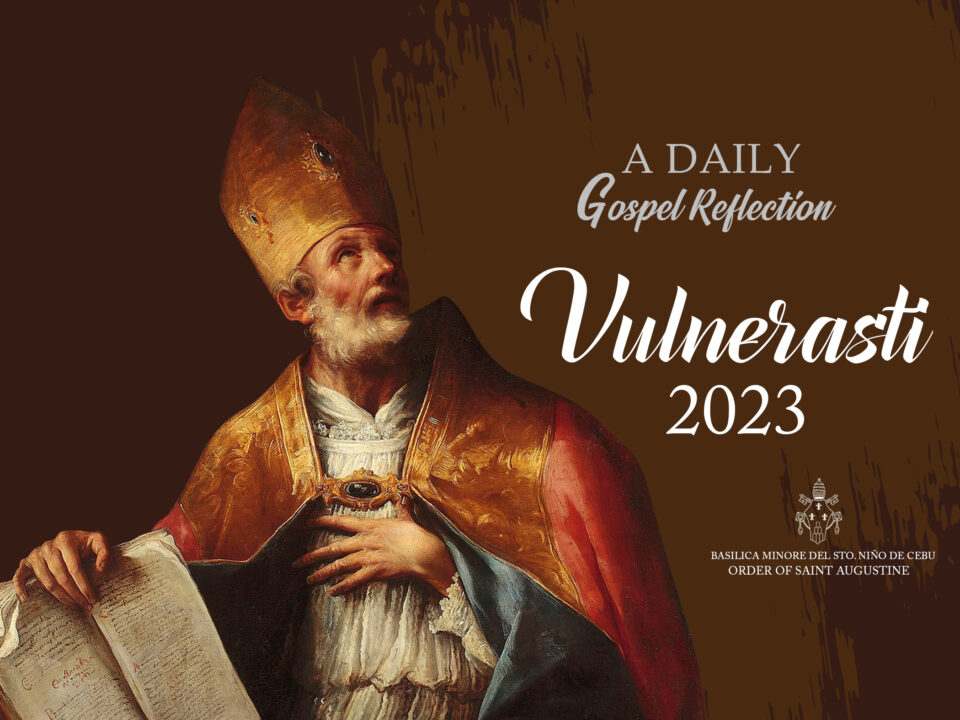Fifth Sunday of Easter

https://en.wikipedia.org/wiki/New_Commandment
Today’s Reflection
Gospel: Jn 13:31-33a.34-35
May 15, 2022 | Sunday
When Judas had gone out, Jesus said, “Now is the Son of Man glorified, and God is glorified in him. God will glorify him, and he will glorify him very soon.
My children, I am with you for only a little while; you will look for me, but as I already told the Jews, now I tell you: where I am going you cannot come.
I give you a new commandment: Love one another! Just as I have loved you, you also must love one another. By this everyone will know that you are my disciples, if you have love for one another.”
Today’s Reflection:
Christianity is a religion of love. Its founder, Jesus Christ, taught his followers what love is and showed them how to love. In fact, in his last discourse with his disciples before his arrest leading to his crucifixion and ultimately his death, he mandated them to “love one another” (Jn. 13:34). Jesus mentions this phrase specifically stating “A new command I give you: Love one another. As I have loved you, so you must love one another.” He then continues, “By this everyone will know that you are my disciples, if you love one another” (v. 35). Such command of Jesus is commemorated in the Church on Holy Thursday or Maundy Thursday of the Holy Week. Maundy comes from the Latin verb mandare meaning, “to command.” The noun “mandatum” which means commandment, or command in Jn. 13:34 is said to have been the biblical foundation of the meaning of Maundy. In Vulgate version of the said Johannine text, it can be read: “Mandatum novum do vobis” (in English “a new commandment I give to you”). This text was said by Jesus within the context of the last supper which covers Jn. 13:1-38.
We have been informed that the commandment to love was already articulated in the Old Testament. In the book of Deuteronomy, the covenanted people were advised of what the Lord asked of them but to fear the Lord their God, to walk in obedience to him, to love (אהב) him, to serve him with all their heart and with all their soul (Dt. 10:12; 11:13). In these instances, the people of God were exhorted to have a deep devotion to him and to endeavor to possess him wholeheartedly. This can be expressed in the way Israel shows concern to the widow or orphan (Ex. 22:22). They should not pervert justice nor show partiality to the poor or favoritism to the great, but judge their neighbor fairly (Lev. 19:15). They should defend the cause of the fatherless and the widow, and give food and clothing to the aliens (Dt.10:18). These are just some of the examples of how love (אהב) must be understood and performed by Israel as they entered into a covenant relationship with God.
In the NT, particularly in the Johannine literature, love as ahab (אהב) that speaks of the people’s deep devotion and possession of God which finds its expression in the way they should relate to the poor, was translated to ἀγαπάω (agapao) – a substantive of ἀγάπη (agape). The term, according to NT scholar J. McArthur, “expresses the ideal kind of love, that which is exercised by the will rather than emotion, not determined by the beauty or desirability of the object, but by the noble intention of the one who loves.” This kind of love finds its origin from the Father whose love to humanity was made manifest in the person of Jesus Christ who in turn showed to the disciples the way back to the Father. It is the love that Jesus mandated to his apostles before his passion.
Notably well, such mandate was truly put to heart by the disciples themselves. After Jesus’ ascension to heaven, reports on how they were persecuted to death were heard around the empire. Even then, they were not afraid to perform what was expected of them as Christians. They knew well that union with their master awaited them in the next life. So, all their actions and relationships were done to fulfill the mandate given to them by Christ. The evangelist Luke wrote that “All the believers were one in heart and mind. No one claimed that any of their possessions was their own, but they shared everything they had. With great power the apostles continued to testify to the resurrection of the Lord Jesus. And God’s grace was so powerfully at work in them all that there were no needy persons among them. For from time to time those who owned land or houses sold them, brought the money from the sales and put it at the apostles’ feet, and it was distributed to anyone who had need” (Acts 4:30-35). They truly became faithful to what Jesus told them: to love one another so that everyone will know that they are his disciples.
In the 19th century, a famous human right advocate Mahatma Gandhi shook Jesus’ followers with this declaration: “I like your Christ; I do not like your Christians. Your Christians are so unlike your Christ.” Such a declaration speaks only of how some Christians have overlooked the essence of Christianity. There is a need to restore in our consciousness that Christianity is a religion of love founded by God who himself is Love (1 Jn. 4:8, 16). /Vulnerasti, 2022



